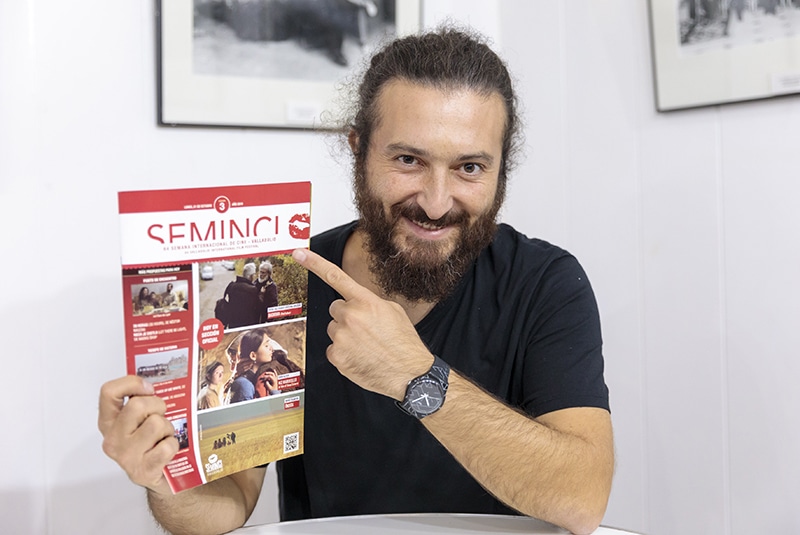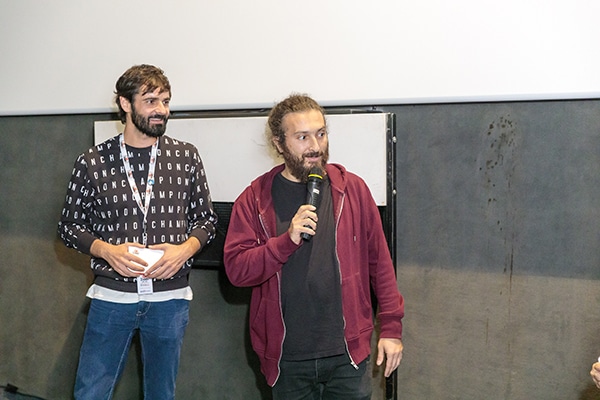
24/10/2019.- In the section Cinema and Climate Change, on 24 October, the feature films Scenes from a Dry City, by François Verster and Simon Wood and Honeyland, by Ljubo Stefanov and Tamara Kotevska were screened. The latter is about the life of a woman who lives in an abandoned village in Macedonia and who takes care of bees and collects honey.
Its photography director, Samir Ljuma, came to Valladolid to talk about the film and has said that “it is a very clear message of that we need to leave something for future generations.”
The idea arose when they were working on a different environmental awareness project. One of the areas they were including was bee conservation, but “the way in which it was presented wasn’t very attractive” the director commented. When they were told about some families who worked in apiculture in a part of Macedonia, their interest was awoken and they went to film in that area. They following day, Hatidze, the lead in this story, found them.
The team, made up most of the time by four people, filmed during three years and recorded about 400 hours. Samir has explained that the main problem was that they could only “be there a maximum of four days for each recording since in that village there is no electricity, light, or running water…” so there was no way of recharging the cameras or passing the files.
Furthermore, they did not understand the Turkish language. Almost six months after starting to edit, they received the translation of the dialogues. They spent six months editing only visually, without knowing what was being said.
Samir Ljuma has assured that “everything that has been filmed is absolutely real, there is no fiction.” In fact, they did not allow themselves to intervene or interfere in the story no matter how hard or unfortunate some of the situations where. They were simple observers and they thought it was better to let things simply happen.
“Now that the film is well-known, we have created a cooperative, crowdfunding, in which people make donations and we in exchange send them a pot of honey,” the photography director has stated. He also brought one of those honey pots with him so that the viewers could try the honey on the documentary.
With the money they have collected so far, they have bought a house for the Hatidze. Samir has said that “it is not a luxurious house but, at least, it has electricity and hot water” and they are renovating it little by little. They are also helping the family in the film with the children’s schooling.
The cooperative is also organising summer camps for children to go spend some days in the village. There, Hatidze shows them her work and starts making them aware of the need to take care of the environment.



























![Logo Foro Cultural de Austria Madrid[1]](https://www.seminci.com/wp-content/uploads/2024/09/Logo-Foro-Cultural-de-Austria-Madrid1-300x76.jpg)








